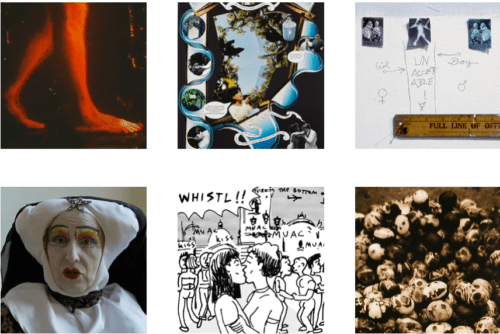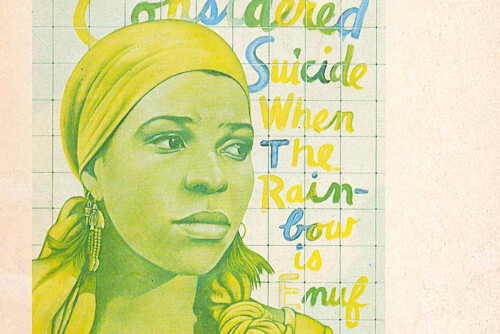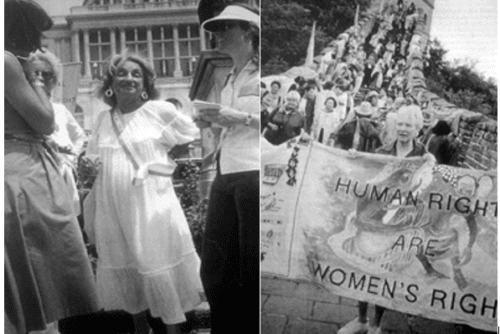A note on this article. 1
“You can’t force people into heaven, dear brother.
You are pushing so hard that they might fall off the other side into hell.”
—Marmoulak 2
“[W]e must abandon the idea of religion as being always and essentially the same, and as being dependent on a faith that is independent of practical traditions because and to the extent that it is transcendental.”
—Talal Asad 3
“In discipline, punishment is only one element of a double system: gratification-punishment. And it is this system that operates in the process of training and correction.”
—Michel Foucault 4
After its release in 2004, Marmoulak (The Lizard), a comedy directed by the well-known Iranian filmmaker Kamal Tabrizi, was screened in Iran for less than a month before authorities banned it. It had widespread success. Shortly after being banned the film was broadly distributed through bootleg copies and DVDs, and became one of the most popular Iranian films, selling a million copies both in Iran and abroad. In this comedy, Reza, a thief notorious for his ability to climb walls, is arrested during an armed robbery. After enduring the rigid disciplinary treatment of the prison administrator, who believes that the prison is a psychiatric institution charged with curing criminals by converting them into normal and respectable citizens, and facing the possibility of being sentenced to life in prison, Reza escapes by dressing as a Shia cleric, or akhund. Reza makes his way to Turkey with the help of an illegal underground network of smugglers who are supposed to fabricate a passport for him. Along the way, he is mistaken for the well-respected clergyman also named Reza, who is being sent to a city in Azerbaijan (not far from the Turkish border) to take spiritual leadership of the town mosque. In a comic turn and by focusing on Reza Marmoulak, the passer’s character, the film brilliantly exposes and unsettles notions of respectability, masculinity, and class capital by interrogating the boundaries of normativity and criminality in what the Islamic State considers a pious, ethical, and religious citizen-subject. By passing as an akhund or mullah, Reza Marmoulak gains access to the menbar (a podium or pulpit in a mosque), from which he can address audiences while exposing the politics of knowledge and religion as cultural and symbolic capital. As Elaine Ginsberg argues, “passing is usually motivated by a desire to shed the identity of an oppressed group to gain access to social and economic opportunities.” 5 In this case, through the genre of comedy the film displays hegemonic and subordinated models of masculinity as they relate to the discourses of respectability and criminality. I refer to respectability to talk about the ways in which masculinity is invoked in modern constructions of nationalism both secular and religious. The discourse of respectability also determines the boundaries of what is defined as normal and abnormal or what “symbolizes the nation’s spiritual and material vitality” in Mosse’s terms. 6 Disguised as an Akhund, Reza Mamoulak gains access to the religious speech from the podium of the Mosque.
The emergence of a gendered Islamic subject in the context of the Iranian revolution of 1979 and its aftermath provided a surface on which cultural and religious nationalists were able to write their own meanings of the Islamic nation. 7 However, after the establishment of the Islamic Republic, the hegemonic masculinity of the citizen/subject became a site of tension and contradiction between the pious masculinity of the clergyman and the secular masculinity of the citizen. 8 This tension continues to be present in Iranian cultural and political spheres. The movie crosses the boundaries of religious and secular, respectable and perverse, and normative and criminal as significant components of hegemonic forms of masculinity under the Islamic Republic and exposes the modern nation-state as a disciplinary apparatus for regulating gender identities. Marmoulak, along with a number of Iranian films that depict passing as their central theme, has created a space for queering citizenship. By depicting gender passing and the display of masculinity and femininity as produced by both secular and religious modern disciplinary regimes of knowledge and power, these films enable an interrogation of respectability, criminality, and identity. In other words, the temporality of an Islamic citizenship defined by the convergence of secular and religious narratives in the performance of gender normativity is momentarily interrupted through the unreadability of identity. These films also challenge foundational narratives of body, religion, nation, gender, and citizenship and, more importantly, expose the process of subject formation as produced by cultural and social meanings and institutions, including the nation-state, religious and secular institutions, the media, and the prison industry. 9
In this essay I am interested in the question of “the surface politics of the body,” in Butler’s terms, or what Foucault defines as the “body politic” or “a set of material elements and techniques that serve as weapons, relays, communication routes, and supports for the power and knowledge relations that invest human bodies and subjugate them by turning them into objects of knowledge.” 10 The body is displayed as the locus of social and cultural disciplining that contains a repertoire of receptivities and sensibilities from verbal communication to bodily responses, exposing Islamic normativity and criminality in the context of the Islamic Republic. Islamic notions of masculinity are influenced by the perceptions of the modern nation-state and the relationship between nationalism, masculinity, and respectability. 11 While the body as a cultural field has been extensively explored by a number of feminist and queer theorists, the stylization of gendered bodies through religious practices needs more scholarly attention. Religion and culture cannot be separated from each other and from the historical conditions within which they emerge, and it is impossible to understand Islam and gender without understanding globalization, colonialism, postcolonial formations, Westernization, religious and secular nationalisms, and citizenship. 12 Despite the tendency in the scholarship on Iran and Islam to disconnect religion from the cultural politics of knowledge and power, the politics of religion cannot be separated from body politics and gender performance in Iranian modernity and postmodernity. 13
In this essay, I elaborate on the ways in which Marmoulak uses passing to focus on the character of the passer, the strategic employment of religious identity, and the moments of rupture where “the other” can be seen and heard. I argue that even though the narrative of the film does not move beyond the assimilation and integration of the outlaw and the criminal into the modern disciplinary society of the Islamic state, Marmoulak radically challenges a number of dichotomies prevalent in Iranian cultural and political spheres, including secular versus religious, mokkalla (a man with a hat) versus moammam (a man with a turban), religious culture versus popular culture mazhabi versus ghair-e mazhabi, and respectable versus criminal mohtaram versus mojrem.
- A draft of this paper was presented in a conference on Sexuality and Religion, at CUNY in 2007. I wish to thank Janet Jakobsen and Dominic Wetzel for inviting me to be part of this conference.[↑]
- Kamal Tabrizi, Marmoulak (The Lizard). Farsi with English Subtitles, Atlantis Enterprises, 2004.[↑]
- Talal Asad, 2001, 145.[↑]
- Michel Foucault, 1979, 180.[↑]
- Lahiri, 2003, 411.[↑]
- Mosse (1985, 23).[↑]
- Mosse (1985, 23).[↑]
- I agree with Connell when he argues that hegemonic masculinity is always constructed in relation to various subordinated masculinities, as well as in relation to women (1987, 183).[↑]
- I agree with Amy Robinson that “the social practice of passing must always be understood in relation to the ‘problem’ of identity, a problem to which passing owes the very possibility of its practice” (1994, 735).[↑]
- Foucault, 28.[↑]
- For an insightful analysis of nationalism and respectability see George L. Mosse, 1985.[↑]
- See Moallem, 2005, 24-25. I agree with Elizabeth Castelli that religion is a “troubled” category because it is inherently unstable (2001, 4). I am also with Jakobsen and Pellegrini that “religion is not a static undertaking in relation to which secularism moves forward through time proposition” (2008, 21).[↑]
- I refer to Butler’s definition of performance as “a dramatic and contingent construction of meaning” (Butler, 1990, 130). In my view, body politics are central to Islamist politics both in the context of the Islamic states and Islamic diasporic communities.[↑]



